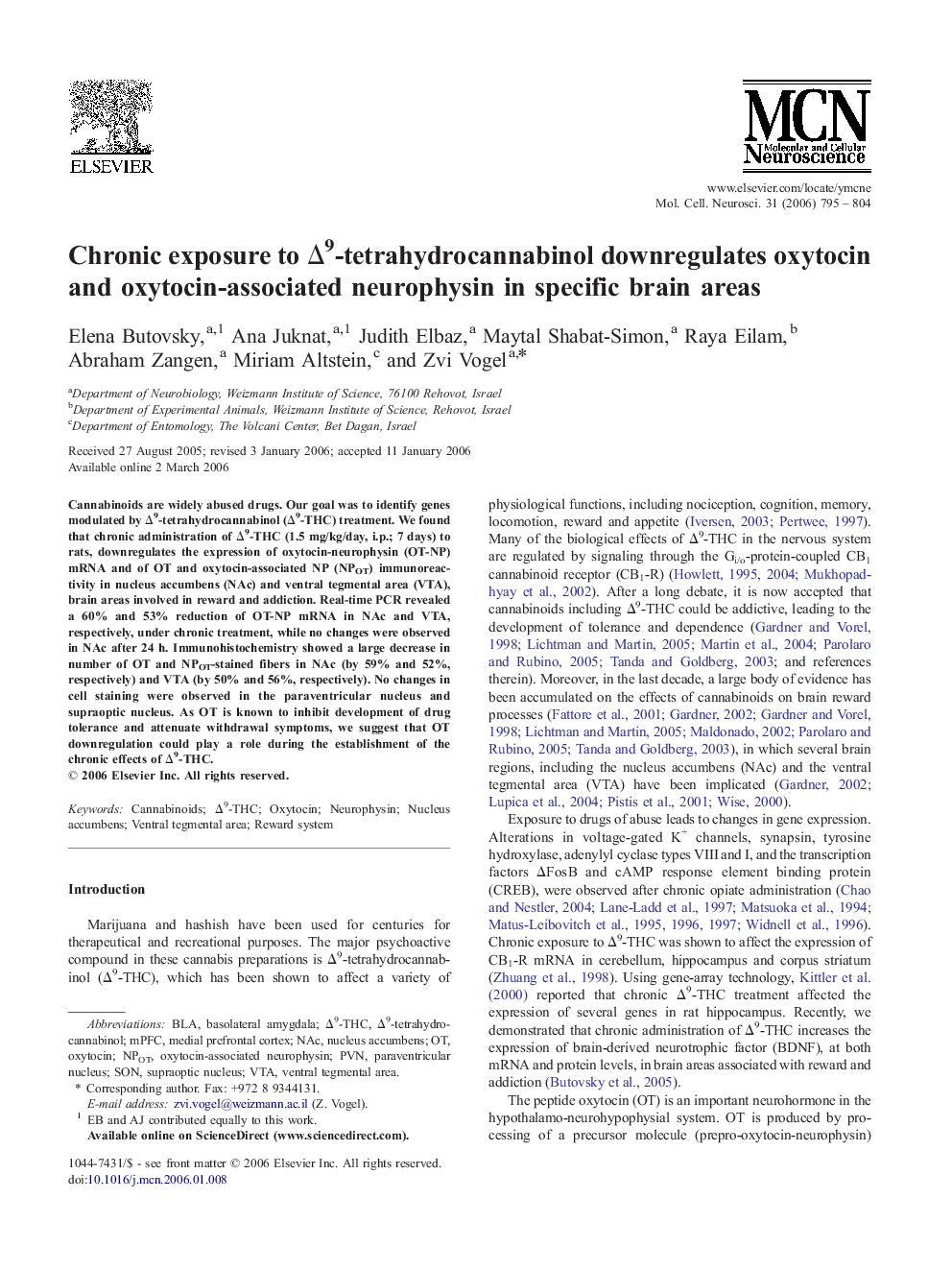| Article ID | Journal | Published Year | Pages | File Type |
|---|---|---|---|---|
| 2199497 | Molecular and Cellular Neuroscience | 2006 | 10 Pages |
Cannabinoids are widely abused drugs. Our goal was to identify genes modulated by Δ9-tetrahydrocannabinol (Δ9-THC) treatment. We found that chronic administration of Δ9-THC (1.5 mg/kg/day, i.p.; 7 days) to rats, downregulates the expression of oxytocin-neurophysin (OT-NP) mRNA and of OT and oxytocin-associated NP (NPOT) immunoreactivity in nucleus accumbens (NAc) and ventral tegmental area (VTA), brain areas involved in reward and addiction. Real-time PCR revealed a 60% and 53% reduction of OT-NP mRNA in NAc and VTA, respectively, under chronic treatment, while no changes were observed in NAc after 24 h. Immunohistochemistry showed a large decrease in number of OT and NPOT-stained fibers in NAc (by 59% and 52%, respectively) and VTA (by 50% and 56%, respectively). No changes in cell staining were observed in the paraventricular nucleus and supraoptic nucleus. As OT is known to inhibit development of drug tolerance and attenuate withdrawal symptoms, we suggest that OT downregulation could play a role during the establishment of the chronic effects of Δ9-THC.
